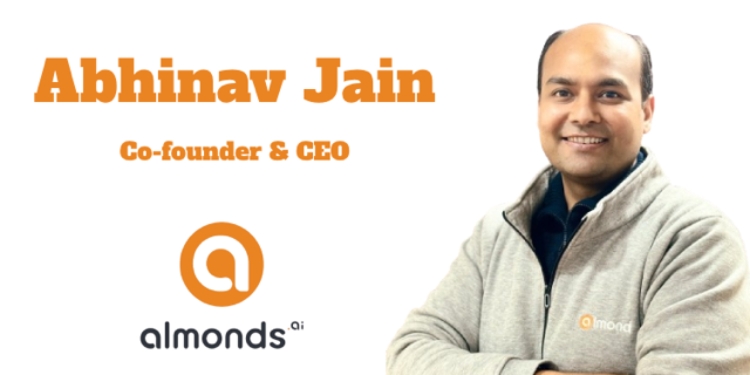Have you ever noticed how some brands just seem to get you? They send that perfect email at the right moment or recommend a product you didn’t even know you needed, yet it fits perfectly. It’s not magic, and it’s not a lucky guess. It results from a deeper understanding of what makes you tick as a customer. Behind the scenes, there’s an entire science to understanding customer loyalty, and artificial intelligence (AI) is at the heart of it.
When we talk about loyalty, we’re not just talking about points programs or discounts. Today, customer loyalty is about much more than that. It’s about building genuine relationships and brands that make us feel understood, valued, and emotionally connected. And here’s where AI comes in—not to replace human interaction, but to enhance it by helping brands understand what motivates you, the customer.
Let’s dive into the science of loyalty and how AI is helping brands like yours foster deeper connections, not just through clever algorithms but by tapping into the heart of what drives human behavior.
The Shift: From Transactions to Emotions
Remember when loyalty meant sticking with a brand because it was convenient, familiar or had the best price? But today’s consumers demand more than that. Now, loyalty is no longer about just earning points on a rewards card; it’s more personal, emotional, and dynamic. Think about your favorite brands today. What keeps you coming back? It’s probably not just the rewards points or sales. It’s how that brand makes you feel.
Today’s consumers are smart, discerning, and let’s be honest demanding. We’re all spoiled for choice. You could easily jump from one brand to another with just a few clicks. So why don’t you? Because the brands that win your loyalty do more than just sell products; they offer experiences, reflect your values, and engage with you on an emotional level.
The secret to creating that kind of bond? Understanding what motivates people at a deeper level—and that’s where AI shines.
How AI Helps Brands Understand You Better
Traditionally, understanding customer motivations relied on methods like surveys, focus groups, and historical purchasing data, but these approaches have limitations. Surveys may not always capture the full picture, and past behaviors don’t always predict future actions.
AI, on the other hand, analyzes vast amounts of real-time data to identify patterns, preferences, and emotional triggers that drive consumer behavior. Here’s how AI is making a difference:
1. Personalization: It’s All About You
Have you ever gotten a recommendation from a brand and thought, “Wow, that’s exactly what I was looking for!”? That’s AI at work. AI helps companies sift through tons of data—from your browsing habits to past purchases—and figure out what’s most relevant to you.
For example, Netflix doesn’t just recommend random shows. It knows what genres you binge on weekends, and it suggests content based on your unique viewing patterns. Similarly, Amazon’s AI isn’t just pushing random products your way. It’s learning from what you’ve bought and looked at to tailor recommendations that make sense for you. When brands do this well, it feels like they “get” you—and that creates a real sense of connection.
2. Emotional Understanding: More Than Words
Brands listen to what we say online, whether it’s through a review, tweet, or Facebook post. But here’s the thing: AI isn’t just analyzing the words you use; it’s trying to understand the emotions behind them. It’s called sentiment analysis, and it helps companies figure out how you feel about them.
Let’s say you tweet about a terrible experience with a delivery. AI can pick up on that frustration and alert the brand immediately, so they can reach out and make it right. On the flip side, if you post an enthusiastic Instagram story about a product you love, AI can catch that positive vibe, allowing the brand to build on it and engage you further.
The best part? When done well, you don’t even notice the tech behind it. You just feel heard—and that’s what drives loyalty.
3. Anticipating Your Needs: The Power of Prediction
Wouldn’t it be great if a brand knew what you wanted before you even asked? This isn’t some far-off future—AI is already making this happen. Predictive analytics allows brands to understand what you might want or need next, based on past behaviors.
For example, let’s say you’re using a subscription service for a monthly delivery of skincare products. AI can track your usage patterns and predict when you’re running low, prompting the brand to send you a reminder or offer before you even realize it yourself. This proactive approach not only keeps you happy, but it makes you feel like the brand is looking out for you—like they’ve got your back. And that feeling is a big part of what keeps us loyal.
Emotional Loyalty: Where the Magic Happens
While points, discounts, and promotions are great, the brands we truly stick with are the ones that make us feel something. This is what we call emotional loyalty, and it’s where the real magic happens.
Emotional loyalty is based on deeper psychological factors—customers are loyal because they feel a personal connection with the brand, not just because of discounts or rewards. AI helps brands tap into these emotional drivers in several ways:
1. Storytelling that Resonates
We all love a good story, and brands that can tell the right stories tend to win our hearts. AI helps companies figure out what kind of stories resonate most with you. Maybe you’re someone who cares deeply about sustainability, and that’s why you connect with brands like Patagonia, which centers its narrative around environmental activism. AI can analyze your behavior to pick up on these values and help brands tailor their messages, so they connect with what you care about.
2. Surprises and Delight: The Little Things Matter
Sometimes it’s the little things that count the most. Brands can use AI to create those unexpected moments of delight that make us feel special. Maybe it’s a surprise discount on your birthday or a personalized thank-you note after a purchase. These little moments are what make us feel valued, and they go a long way in building emotional loyalty.
Take Starbucks, for example. Their rewards app doesn’t just give you free drinks after a set number of purchases. It tracks your preferences, your favorite drinks, and even how often you visit. It’s not just about points; it’s about creating a relationship that feels personal.
3. Building a community
We all want to feel like we belong, and the best brands understand this. AI helps companies create spaces where customers feel like they’re part of something bigger than just a transaction. For example, Nike’s AI-powered app offers personalized workout plans, tracks progress and connects you with other runners. It’s not just about selling shoes; it’s about creating a community of like-minded individuals who share a passion for fitness. And that kind of connection breeds loyalty.
The Human Touch in a Tech-Driven World
As much as AI can help brands understand us, let’s be clear—human connection is still at the heart of loyalty. AI isn’t about replacing human interaction; it’s about enhancing it. It helps brands listen better, anticipate needs, and engage in more meaningful ways. The brands that use AI best are the ones that keep the focus on creating human connections that make us feel seen, valued, and understood.
At the end of the day, loyalty isn’t just about rewards points or personalized emails. It’s about relationships. And with AI, brands have the tools to build those relationships in ways that feel more personal, more meaningful, and more lasting. When done right, AI isn’t just smart, it’s human. And that’s what makes us loyal.
(Views expressed in Authored Article are personal)

















